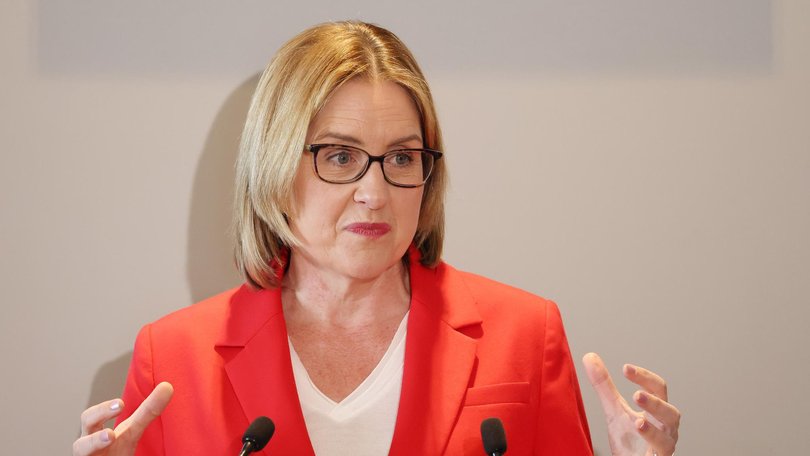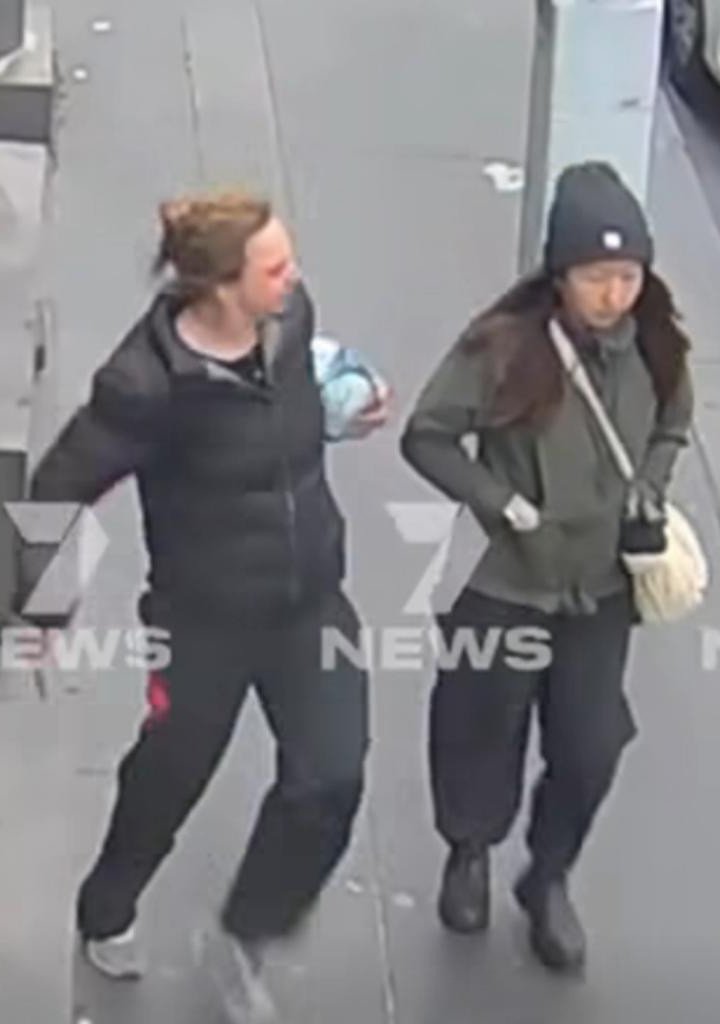Victoria’s Labor premier borrows from Queensland’s conservatives to fight a youth crime epidemic
AARON PATRICK: Facing out-of-control youth crime, Victorian leader Jacinta Allan has decided to copy her conservative Queensland counterpart

The government of Victoria, where youth crime feels out of control, has finally accepted what most people in the state already know: for years teenage gangs have been exploited a justice system designed for an earlier, more innocent era.
On Wednesday Premier Jacinta Allan said the government would impose “adult time for violent crime” in response to home invasions, street brawls, carjackings and other violence that has spread from housing estates across Melbourne.
At a press conference in the city the Labor premier sounded like her Queensland Coalition counterpart, David Crisafulli, who won power this year after campaigning against child crime.
Sign up to The Nightly's newsletters.
Get the first look at the digital newspaper, curated daily stories and breaking headlines delivered to your inbox.
By continuing you agree to our Terms and Privacy Policy.“We want the courts to treat these violent children like adults, so jail is more likely and sentences are longer,” Ms Allan told journalists. “Adult time for violent crime will mean more violent youth offenders going to jail, facing serious consequences.”
The changes mark a huge shift in how young criminals will be treated.
The Children’s Court of Victoria is built on the philosophy that young offenders are often victims themselves — of bad parents, poverty or abuse. The new rules will end the presumption that sending a child to jail should be the last resort.
Teenagers charged with certain crimes will skip the Children’s Court altogether. Those crimes have received so much attention in Victoria that they are almost no longer shocking when carried out by 14 and 15-year-olds: aggravated home invasion, intentionally or recklessly causing injury in circumstances of gross violence, carjacking and serious and repeat aggravated burglary and armed robbery.
Maximum sentences will be higher too. Life imprisonment will become an option for judges when sentencing children convicted of aggravated home invasions or carjackings — a sentence of such severity it would have been considered unimaginable in the left-wing state a few years ago.
Loss of compassion
Youth-justice advocates are aghast. The changes are “incompatible with the fundamental rights of children,” argued Jesuit Social Services, a Catholic charity.
But footage of teenagers running amok with machetes and other weapons and stories of cars being stolen from middle-class families in the night have sapped the state’s compassion.
Instead of places where kids socialise, shopping centres have places from them to fight. Crimes reported at 13 major Melbourne centres last financial year rose 20 per cent, according to Victoria’s Crime Statistics Agency. The worst is Bayside in Frankston which suffers two assaults a week on average.
Detected crimes across the state rose by about 15 per cent to 86,587.
“It’s the increased use of dangerous weapons that is the concerning recent trend,” Shopping Centre Council of Australia chief executive officer Angus Nardi told the ABC. “Whether that be knives, machetes, even recently crowbars and cricket bats.”

Underlying cause
For a state that prides itself on its compassion, one of the underlying causes is confronting. Many of the offenders appear to come from families welcomed as refugees in the past two decades.
In what must be heartbreaking for parents, some of these children have turned to crime rather than pursue what must feel like limited professional prospects. Experts say they are used by adult gangs to steal expensive cars knowing the children face light sentences if caught.
Circulating in a world that celebrates violence and shares exploits on social media, a hardcore group has emerged that cares little for the law.
About 1100 boys and girls between 10 and 17 have been arrested in Victoria a combined 7000 times, according to crime statistics. Most are quickly released on bail, although incarceration rates are climbing as the Labor government tries to get on top of the problem.
Once the new laws are introduced, many of these children will face a choice: find new careers or potentially spend much of their best years in prison.
Critics regard the new policy as an admission that previous crime measures have failed, including a machete ban that started in September.
“Without enough police to arrest them, rogue judges who refuse to enforce consequences and no prisons to house them in, how do you expect this to be effective Jacinta?” one person wrote on X in response to the premier’s announcement.
Opposition leader Brad Battin, a former police officer, has made fighting crime his top priority. On Wednesday he said Ms Allan could not be trusted “to follow through and deliver” on her plan.
An election is due in the state in one year’s time.

